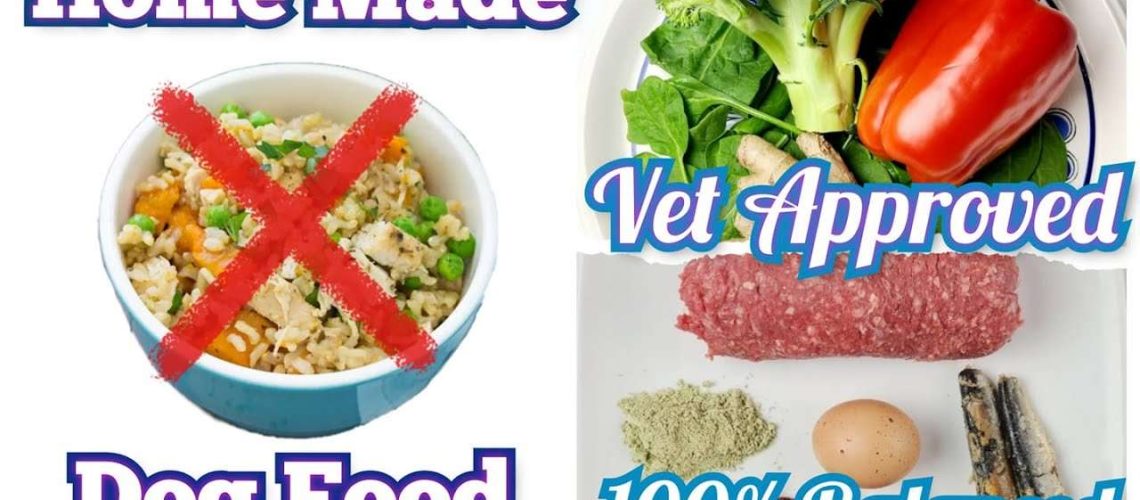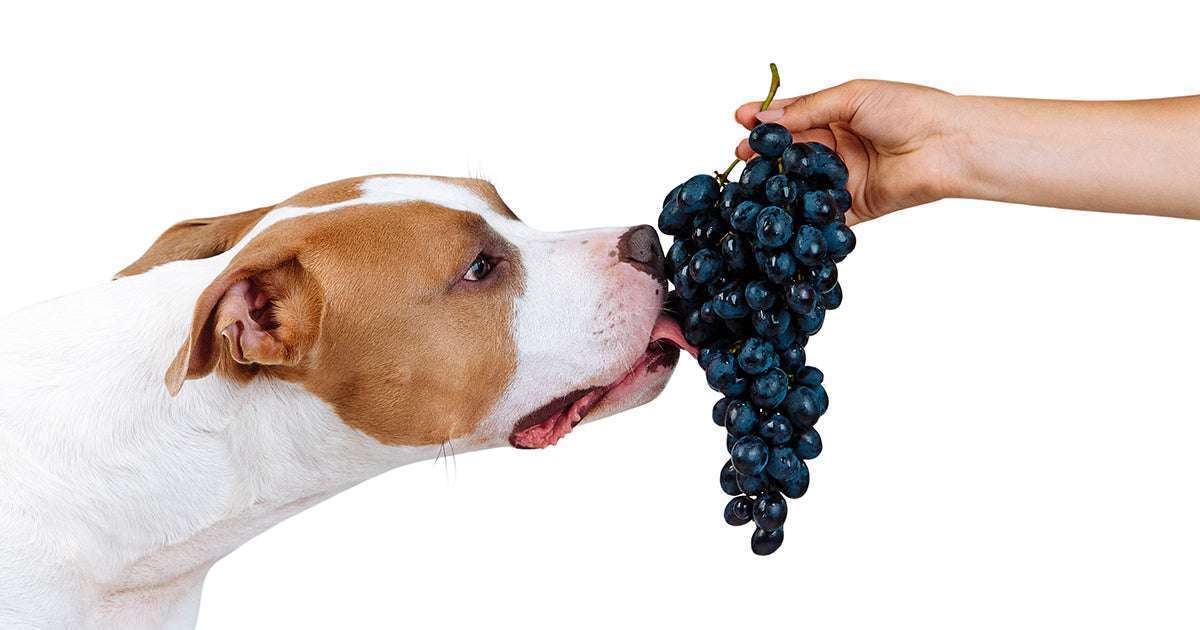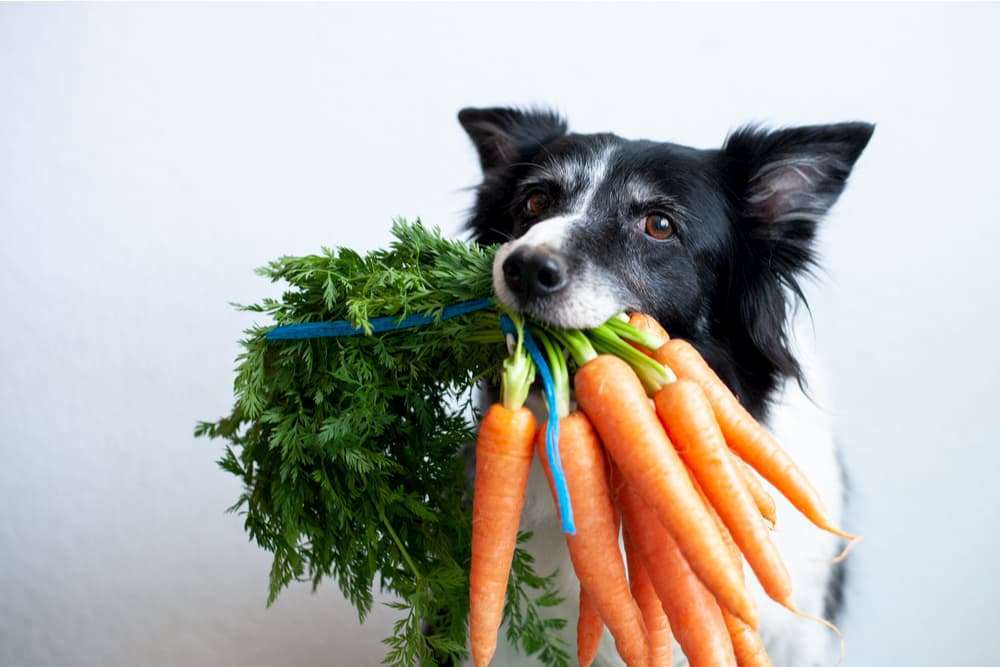Key Takeaways:
- Homemade dog food recipes can be a healthy and nutritious alternative to commercial dog food.
- It is important to consult with a veterinarian before starting your dog on a homemade diet to ensure it meets their specific nutritional needs.
- Include a variety of protein sources, such as lean meats and fish, in homemade dog food recipes to provide essential amino acids.
- Fruits and vegetables should also be included in homemade dog food recipes to provide vitamins, minerals, and fiber.
- Avoid using ingredients that are toxic or harmful to dogs, such as onions, garlic, grapes, and chocolate.
Are you a dog lover who wants to ensure your furry friend is getting the best nutrition possible? Look no further! In this article, we will explore vet-approved homemade dog food recipes that not only provide numerous health benefits but also allow you to have peace of mind knowing exactly what ingredients are going into your pup's bowl. Understanding the importance of a balanced diet for dogs is essential in maintaining their overall well-being and longevity. According to recent studies, over 50% of dogs suffer from obesity, which can lead to various health issues such as diabetes and joint problems. By preparing your own dog food at home, you have complete control over the quality and quantity of ingredients, ensuring your canine companion receives all the necessary nutrients without any harmful additives or fillers. So let's dive into these delicious and nutritious recipes that will leave your furry friend begging for more!
Vet-Approved Homemade Dog Food Recipes for Your Furry Friend
Why Make Homemade Dog Food?
Making homemade dog food for your furry friend can have several benefits. First, it allows you to have control over the ingredients in your dog's food, ensuring that they are getting high-quality and nutritious meals. Second, some dogs may have specific dietary needs or allergies that can be better managed with a homemade diet. Lastly, preparing your dog's meals at home can be a fun and rewarding experience that strengthens the bond between you and your pet.
Delicious and Nutritious Vet-Approved Recipes
When it comes to making homemade dog food, it is important to choose vet-approved recipes to ensure that your pet is getting all the necessary nutrients. These recipes are carefully formulated by veterinarians who understand the nutritional needs of dogs. They include a balance of proteins, carbohydrates, fats, vitamins, and minerals to support your dog's overall health.
Here are two vet-approved homemade dog food recipes:
Recipe 1: Chicken and Sweet Potato Delight
- Ingredients:
- 2 cups cooked chicken (boneless and skinless)
- 1 cup cooked sweet potatoes
- 1/2 cup peas (cooked or frozen)
- 1/4 cup carrots (cooked or grated)
- 1 tablespoon olive oil
- Instructions:
- Mix all the ingredients together in a bowl.
- Serve the mixture as a meal or use it as a topper for your dog's regular kibble.
Recipe 2: Beef and Rice Medley
- Ingredients:
- 1 pound ground beef (lean)
- 1 cup cooked brown rice
- 1/2 cup spinach (chopped)
- 1/4 cup blueberries
- 1 tablespoon fish oil
- Instructions:
- Cook the ground beef in a pan until fully browned.
- Add the cooked brown rice, chopped spinach, blueberries, and fish oil to the pan. Mix well.
- Cook for an additional few minutes until the ingredients are heated through.
- Serve the mixture as a meal or use it as a topper for your dog's regular kibble.
These recipes are just a starting point, and you can customize them based on your dog's preferences and dietary needs. Remember to consult with your veterinarian before making any significant changes to your dog's diet.
The Importance of Choosing Vet-Approved Recipes for Homemade Dog Food
When it comes to feeding our furry friends, it's crucial to ensure that we are providing them with the best nutrition possible. This is why choosing vet-approved recipes for homemade dog food is so important. Veterinarians have extensive knowledge and expertise in animal nutrition, and they can guide us in selecting the right ingredients and proportions to meet our pets' specific dietary needs.
By opting for vet-approved recipes, we can be confident that we are providing our dogs with a balanced and nutritious diet. These recipes have been carefully formulated to include all the essential nutrients that dogs require, such as proteins, carbohydrates, fats, vitamins, and minerals. They also take into consideration any specific health conditions or allergies that our pets may have.
Why trust vet-approved recipes?
Vet-approved recipes are developed by professionals who understand the unique nutritional requirements of dogs. They undergo rigorous testing and evaluation to ensure their safety and effectiveness. By following these recipes, we can avoid potential pitfalls of homemade dog food diets, such as nutrient deficiencies or imbalances.
Understanding Recommended Ingredients in Vet-Approved Homemade Dog Food Recipes
When preparing homemade dog food using vet-approved recipes, it's essential to understand the recommended ingredients. These ingredients are carefully selected to provide dogs with a well-rounded diet that supports their overall health and wellbeing.
The primary ingredient in most vet-approved homemade dog food recipes is a high-quality source of protein. This could be lean meats like chicken or turkey, fish, or plant-based proteins like lentils or quinoa. Protein is crucial for muscle development and repair in dogs.
Other important ingredients
- Fruits and vegetables: These provide essential vitamins, minerals, and antioxidants that support the immune system and promote overall health.
- Healthy fats: Dogs need a moderate amount of healthy fats, such as those found in fish oil or coconut oil, to maintain a shiny coat and support brain function.
- Carbohydrates: Whole grains like brown rice or oats are often included to provide energy and fiber for digestion.
Ensuring Your Pet's Nutritional Needs with Homemade Dog Food
Feeding our dogs homemade food allows us to have full control over their nutrition. However, it's crucial to ensure that we are meeting all of their nutritional needs. By following vet-approved recipes, we can be confident that our pets are getting the right balance of nutrients.
Vet-approved homemade dog food recipes typically include guidelines for portion sizes based on the size, age, and activity level of our dogs. These recipes also consider any specific dietary requirements or health conditions that our pets may have. It's important to follow these guidelines closely to avoid overfeeding or underfeeding our furry friends.
The role of supplements
In some cases, additional supplements may be recommended by veterinarians to ensure that our dogs are receiving all the necessary nutrients. These supplements could include omega-3 fatty acids for joint health or probiotics for digestive support. It's essential to consult with a veterinarian before introducing any supplements into our pet's diet.
Guidelines and Measurements for Making Vet-Approved Homemade Dog Food
Making vet-approved homemade dog food requires careful attention to guidelines and measurements. Following these instructions ensures that we are providing our pets with a balanced and nutritious meal every time.
Vet-approved recipes usually provide detailed instructions on how to prepare the ingredients, including cooking methods and times. They also specify the correct proportions of each ingredient to ensure a well-balanced meal. Measuring cups and kitchen scales can be used to accurately portion out the ingredients.
Meal preparation and storage
Once the homemade dog food is prepared, it's important to store it properly to maintain its freshness and safety. Vet-approved recipes often recommend dividing the food into individual portions and storing them in airtight containers in the refrigerator or freezer. This helps to prevent spoilage and allows for easy serving at mealtime.
Tips for Storing and Serving Fresh and Safe Homemade Dog Food
Proper storage and serving of homemade dog food are essential to ensure its freshness and safety for our pets. Here are some tips to keep in mind:
- Divide the food into individual portions: This makes it easier to thaw or heat only what is needed for each meal, reducing waste.
- Label containers with dates: This helps us keep track of when the food was prepared, ensuring that we use it within a safe timeframe.
- Thaw frozen portions safely: If using frozen homemade dog food, thaw it in the refrigerator overnight or use the defrost setting on a microwave. Avoid leaving it at room temperature for too long, as this can promote bacterial growth.
- Serve at room temperature: Before serving homemade dog food, allow it to reach room temperature. Cold food may not be as appealing to our pets.
Finding Additional Resources and Professional Advice on Vet-Approved Homemade Dog Food Recipes
If we want to dive deeper into vet-approved homemade dog food recipes or seek professional advice, there are several resources available:
- Veterinarians: Our trusted veterinarians are an excellent source of information and can provide personalized guidance based on our pet's specific needs.
- Online communities and forums: Joining online communities of dog owners who prepare homemade food can provide valuable insights, tips, and recipe recommendations.
- Books and publications: There are numerous books and publications written by veterinarians and pet nutrition experts that delve into the topic of homemade dog food. These resources can offer comprehensive guidance and recipes.
Remember to always consult with a veterinarian before making any significant changes to our pet's diet or introducing new ingredients. They can provide professional advice tailored to our individual dog's needs.
In conclusion, homemade dog food recipes approved by vets can provide a healthy and nutritious alternative to commercial dog food. By following these recipes, you can ensure that your furry friend gets the best possible care and nutrition.
Do vets approve of homemade dog food?
Larsen suggests that while homemade food can be a good choice for pets, it is important for owners to consult with a veterinary nutritionist instead of relying on general recipes from books and the Internet. This advice was given on May 8, 2019.
What is the vet approved ratio for homemade dog food?
A healthy suggestion for a dog's diet is to have 40% protein, 50% vegetables, and 10% starch. However, it's important to note that some dogs may not be able to tolerate high levels of protein, so it's advisable to consult a veterinarian to determine the ideal ratio for their specific dietary requirements.
What ingredients should be in homemade dog food?
In order to provide your pet with a balanced diet, they require protein from sources such as animal meat, seafood, dairy, or eggs. They also need fat from sources like meat or oil, as well as carbohydrates from grains or vegetables. Additionally, calcium from dairy or ingredients like egg shells, and essential fatty acids from plant oils, egg yolks, oatmeal, and other foods are necessary for their health.
Is homemade dog food better for your dog?
Whether your pet eats store-bought or homemade food, as long as their nutritional needs are fulfilled, there is no significant difference. However, homemade food tends to lack essential nutrients more frequently.
What should the first two ingredients in dog food be?
Pay attention to the primary components. The primary protein should be listed first and it should be a genuine meat source like chicken, duck, or lamb. The second component should also be a meat source, typically identified as a meal like lamb meal or duck meal.
What is the 80 20 rule dog food?
Our range of natural raw dog food is designed to provide all the necessary nutrients for adult dogs. Specifically, our 80/20 ACTIVE line is specially formulated to meet the nutritional needs of active working dogs, containing 80% raw meat and bone and 20% fresh vegetables and natural herbal supplements.

















